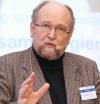- Adloff, F.; St. Mau (Hrsg.) (2005): Vom Geben und Nehmen. Zur Soziologie der Reziprozität. Frankfurt/M & NY: Campus.
- Adloff, F. & Sigmund, St. (2005): Die gift economy moderner Gesellschaften. Zur Soziologie der Philanthropie. In: Adloff, F. & Mau, St. (Hrsg.): Vom Geben und Nehmen. Zur Soziologie der Reziprozität. Frankfurt/M & NY: Campus. 211 - 236
- Beck, U. (2009): Macht und Gegenmacht im globalen Zeitalter. Neue weltpolitische Ökonomie. Frankfurt/M.: Suhrkamp.
- Bedorf, Th. (2010): Verkennende Anerkennung. Frankfurt/M.: Suhrkamp.
- Bedorf, Th., Fischer, J. und Lindemann, G. (Hrsg.) (2010): Theorien des Dritten. Innovationen in Soziologie und Sozialpsychologie. Paderborn: Fink.
- Blau, P. M. (2005): Sozialer Austausch. In: Adloff, F., Mau, St. (Hrsg.): Vom Geben und Nehmen. Zur Soziologie der Reziprozität. Frankfurt/M & NY: Campus.
- 125 – 138.
- Bourdieu, P. (1998): Praktische Vernunft. Zur Theorie des Handelns. Frankfurt/M.: Suhrkamp, 163 – 182.
- Ders. (2005): Die Ökonomie der symbolischen Güter. In: F. Adloff & St. Mau (Hrsg.) Ebd. 139 – 156.
- Breithaupt, F. (2012): Kulturen der Empathie. (3. Auflage) Frankfurt/M.: Suhrkamp.
- Bröckling, U. , Krasmann, S. & Lemke, Th. (Hrsg.) (2012): Gouvernementalität der Gegenwart. Studien zur Ökonomisierung des Sozialen.( 6. Auflage)Frankfurt /M. : Suhrkamp.
- Caille, A. (2008): Anthropologie der Gabe. Frankfurt/M: Suhrkamp.
- Derrida, J. (1993): Falschgeld. Zeit geben. München: Fink
- Ehrenberg, A. (2008): Das erschöpfte Selbst. Depression und Gesellschaft in der Gegenwart. Frankfurt/ M.: Suhrkamp.
- Eßlinger, E., Schlechtriemen, T., Schweitzer, D., Zons, A. (Hrsg.) (2010): Die Figur des Dritten. Ein kulturwissenschaftliches Paradigma. Frankfurt/M.: Suhrkamp.
- Giddens A. (1992): Die Konstitution der Gesellschaft. Frankfurt/M.: Campus
- Harbsmeier, M. & Möckel, S. (Hrsg.) (2009): Pathos, Affekt, Emotion. Transformationen der Antike. Frankfurt/M.: Suhrkamp.
- Henaff, M. (2009): Der Preis der Wahrheit. Gabe, Geld und Philosophie. Deutsche Übersetzung von E. Moldenhauer, Frankfurt/M. : Campus.
- Ders. (2014): Die Gabe der Philosophen. Gegenseitigkeit neu denken. Deutsche Übersetzung von E. Moldenhauer. Bielefeld: transcript.
- Hentschel, I. et al (Hrsg.) (2012): Im Modus der Gabe. Theater, Kunst, Performance in der Gegenwart. Kerber Forum/Kunsthochschule Halle.
- Hollstein, B. (2005): Reziprozität in familialen Generationenbeziehungen. In: Adloff, F.; St. Mau (Hrsg.): Vom Geben und Nehmen. Zur Soziologie der Reziprozität. Frankfurt/M & NY: Campus.
- 187 – 210.
- Honneth, A. (1992): Kampf um Anerkennung. Zur moralischen Grammatik sozialer Konflikte. Frankfurt/M.: Suhrkamp.
- Honneth, A. (2002): Organisierte Selbstverwirklichung. Paradoxien der Individualisierung. In: Ders. (Hrsg.): Befreiung aus der Mündigkeit. Paradoxien des gegenwärtigen Kapitalismus. Institut für Sozialforschung. Frankfurt /M. Campus. 141 – 158.
- Koschorke, A. (2010): Institutionentheorie. In: Eßlinger, E., Schlechtriemen, T., Schweitzer, D., Zons, A. (Hrsg.): Die Figur des Dritten. Ein kulturwissenschaftliches Paradigma. Frankfurt/M.: Suhrkamp. 49 – 64.
- Lenz, K. (2010): Dritte in Zweierbeziehungen. In: Bedorf, Th., Fischer, J. und Lindemann, G. (Hrsg.): Theorien des Dritten. Innovationen in Soziologie und Sozialpsychologie. Paderborn: Fink. 213 – 248.
- Lindemann, G. (2010): Statt der Dyade: die Ego-Alter-Tertius-Konstellation als konstitutive Bedingung von Sozialität. Bedorf, Th., Fischer, J. und Lindemann, G. (Hrsg.): Theorien des Dritten. Innovationen in Soziologie und Sozialpsychologie.Paderborn: Fink. 161 – 180.
- Minsky, H. P. (1970): Financial Instability Revisited: The Economics of Disaster. Prepared for the Steering Committee for the Fundamental Reappraisal of the Discount Mechanism appointed by the Board of Governors of the Federal Reserve System.Washington.
- Ders. (1982): The Financial Instability Hypothesis: Capitalist Process and the Behavior of the Economy. In: Kindleberger, Ch.P. & Lafargue, J.-P. (Ed.): Financial Crisis. Theoriy, History, and Policy. Cambridge/MA., p. 19 – 32.
- Obolenski, A. Meyer, H. (Hrsg.) (2003): Forschendes Lernen. Theorie und Praxis einer professionellen LehrerInnenausbildung. Bad Heilbrunn(OBB.: Klinkhardt,
- Plumpe, W. (2002): Rationalität und Risiko: zum historischen Charakter der modernen Wirtschaft. In: Honneth, A. (Hrsg.): Befreiung aus der Mündigkeit. Paradoxien des gegenwärtigen Kapitalismus. Institut für Sozialforschung. Frankfurt /M. Campus. 13 – 34.
- Rombach, U. & P. Seiler (2009): Eleos – misericordia – compassio. Transformationen des Mitleids in Text und Bild. In: M. Harbsmeier & Möckel, St. (Hrsg.): Pathos, Affekt, Emotion. Transformationen der Antike. Frankfurt/M.: Suhrkamp. 250 – 276.
- Reckwitz, A. (2013): Die Erfindung der Kreativität. Zum Prozess gesellschaftlicher Ästhetisierung. Frankfurt/M.: Suhrkamp.
- Shui H., Blankenburg S.: Neoliberalismus: Theorie, Gegner, Praxis. VSA, Hamburg 2002.
- Simmel, G. (1908): Soziologie. Untersuchungen über Formen der Vergesellschaftung. In: Aufsätze und Abhandlungen 1901 – 1908, hrsg. von O. Rammstedt, erschienen 1992, Gesamtausgabe Band II. Frankfurt / M.: Suhrkamp.
- Seifert, A., Zentner, S. & Nagy, F. (2012): Praxisbuch Service Learning. Lernen durch Engagement an Schulen. Weinheim: Beltz.
- Szczyrba, B.; Treeck v. , T.; Wildt, B.; Wildt, J. (2016). Einleitung: Diskurse und Praxen der Beratung zur Entwicklung von Studium und Lehre an einer diversitätssensiblem Hochschule. In: Szczyrba, B., Treeck v., T.; Wildt, B.; Wildt, J. (Hrsg.): Coaching (in) Diversity. Hintergründe, Ziele, Anlässe, Verfahren. Wiesbaden: Springer, 1 – 19.
- Schneider, R. & Wildt, J. (2003): Das berufspraktische Halbjahr in dortmund: Forschendes Lernen in Praxisstudien einer professionellen Lehrerausbildung. In: Obolenski, A. Meyer, H. (Hrsg.): Forschendes Lernen. Theorie und Praxis einer professionellen LehrerInnenausbildung. Bad Heilbrunn(OBB.: Klinkhardt, 166 – 184.
- Voswinkel, St. (2005): Reziprozität und Anerkennung in Arbeitsbeziehungen. In: Adloff, F. & Mau, St. (Hrsg.): Vom Geben und Nehmen. Zur Soziologie der Reziprozität. Frankfurt/M & NY: Campus. 237 – 256.
- Welbers, U. und Gaus, O. (Hrsg.) (2005). ‘The Shift from Teaching to Learning’. Konstruktionsbedingungen eines Ideals. Johannes Wildt zum 6oigsten Geburtstag. Blickpunkt Hochschuldidaktik. Bielefeld: Wilhelm Bertelsmann.
- Wildt, B.(Hrsg.) (1997) Gesundheitsförderung in der Schule. Wiesbaden: Luchterhand (Beltz)
- Wildt, B. (2015): Theater als Methode einer geschichtlichen Erinnerungskultur – Erfahrungen aus Lehre und Weiterbildung. In: Senger, U., Robel, Y. & Logge, Th. (Hrsg.): Projektlehre im Geschichtsstudium. Verortungen, Praxisberichte und Perspektiven. Bielefeld: W. Bertelsmann, 167 – 181.
- Wildt, J. (2003): Reflexives Lernen in der Lehrerbildung – ein Mehrebenenmodell in hochschuldidaktischer Perspektive. In: Obolenski, A. Meyer, H. (Hrsg.): Forschendes Lernen. Theorie und Praxis einer professionellen LehrerInnenausbildung. Bad Heilbrunn(OBB.: Klinkhardt, 71 – 84.
- Wildt, J. (2013): Entwicklung und Potentiale der Hochschuldidaktik. In: Erichsen, H..U., Schäferbarthold, D., Staschen, H. & Zöllner, , E. J.(Hrsg.): Lebensraum Hochschule. Siegburg: Reckinger, 93 – 116.
- Wildt, J. (2015): Ein Blick zurück nach vorn: Forschendes Lernen in Praxisstudien als hochschuldidaktisches Leitkonzept. In: Senger, U., Robel, Y. & Logge, Th. (Hrsg.): Projektlehre im Geschichtsstudium. Verortungen, Praxisberichte und Perspektiven. Bielefeld: W. Bertelsmann, 65 – 93.
- Wildt, J. & Wildt, B. (2011): Lernprozessorientiertes Prüfen im Constructive Alignment: Ein Beitrag zur Förderung der Qualität der Hochschulbildung durch eine Weiterentwicklung des Prüfungssystems. In: Behrend, B. Szczyrba, B., Wildt, J. (Hrsg.): Neues Handbuch Hochschullehre. (Griffmarke H 6.1). Berlin: Raabe.
Wildt B., Wildt J. The meaning of the gift exchange concept for the system of education. LIFELONG EDUCATION: The 21st Century.
2016. № 4 (16).DOI: 10.15393/j5.art.2016.3324
2016. № 4 (16).
| Issue 4 (16) | Education Management in an open global society |
 pdf-version |
The meaning of the gift exchange concept for the system of education
 | Wildt Beatrix Dipl. Psychologist, Pedagogue (Dortmund, Germany) beatrix.wildt@uni-oldenburg.de |
 | Wildt Johannes Full Professor of the Dortmund Technical University (Dortmund, Germany) johannes.wildt@tu-dortmund.de |
|
Keywords: neo-liberalism economization gift exchange reciprocal gift giving education school higher educational institution. |
Abstract: the various aspects of the gift exchange theory in the context of neoliberal trends and demands for economization of all social spheres, including the spheres of education and professional teacher's training are considered in the article. On the basis of the analysis of the leading works on the gift exchange theory (P. Bourdieu, A. Giddens, J. Derrida, А. Kaye, and others) the authors made their point on the exchange gift theory as a model of inter-personal relations being productive for solving many problems including educational ones. Within the frames of the article the functions of giving gifts in a modern society are analyzed, and the fields, conditions, and gift exchange in various social and institutional systems are specified, the social-pedagogical purpose of the Service Learning curriculum that has got international recognition. The article is of social-pedagogical character; the theoretical thesis put forward by the authors may be used for the development of the theory of pedagogical interaction and new trends of educational management. |
Paper submitted on: 11/01/2016; Accepted on: 11/27/2016; Published online on: 12/20/2016.
Displays: 5700; Downloads: 1051;
DOI: http://dx.doi.org/10.15393/j5.art.2016.3324










